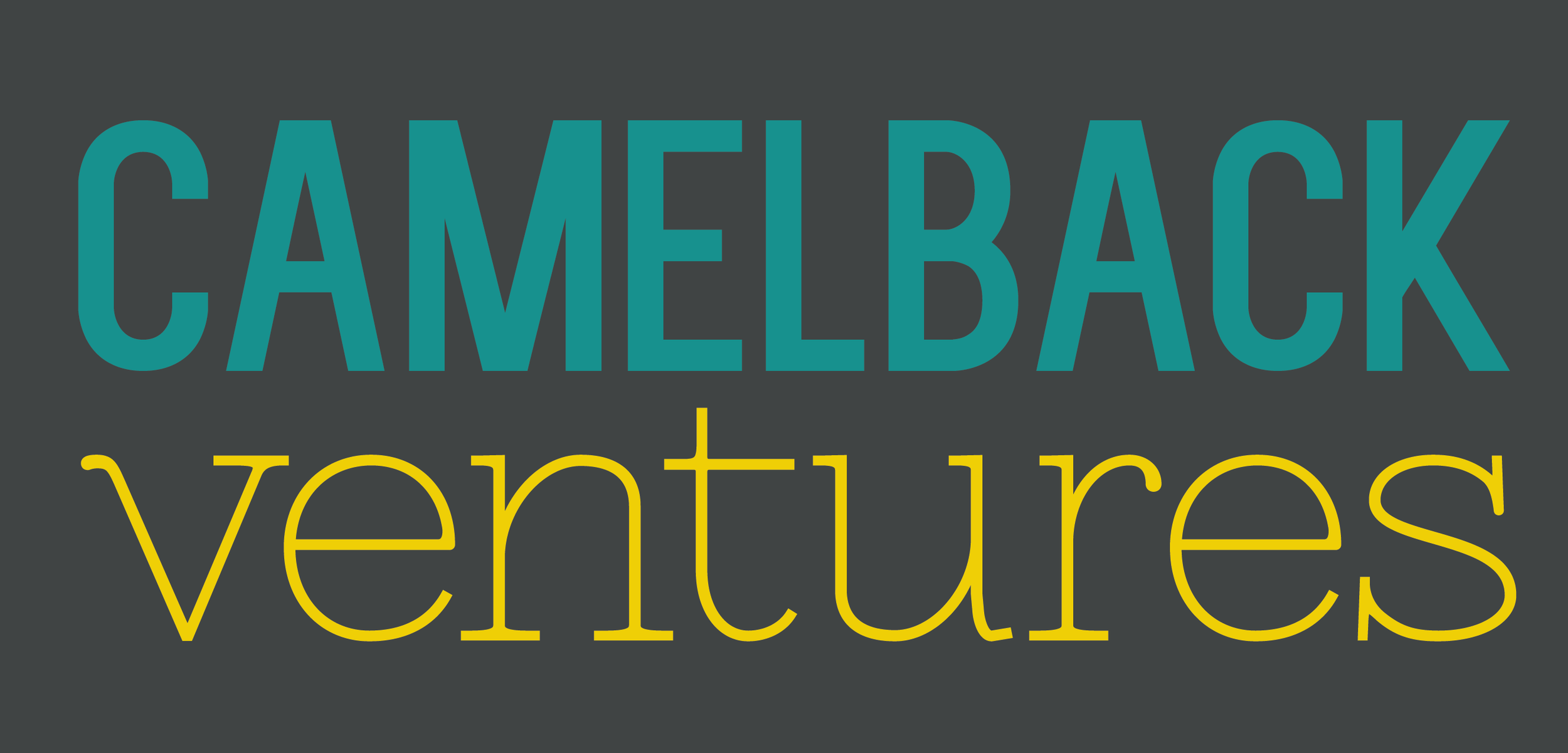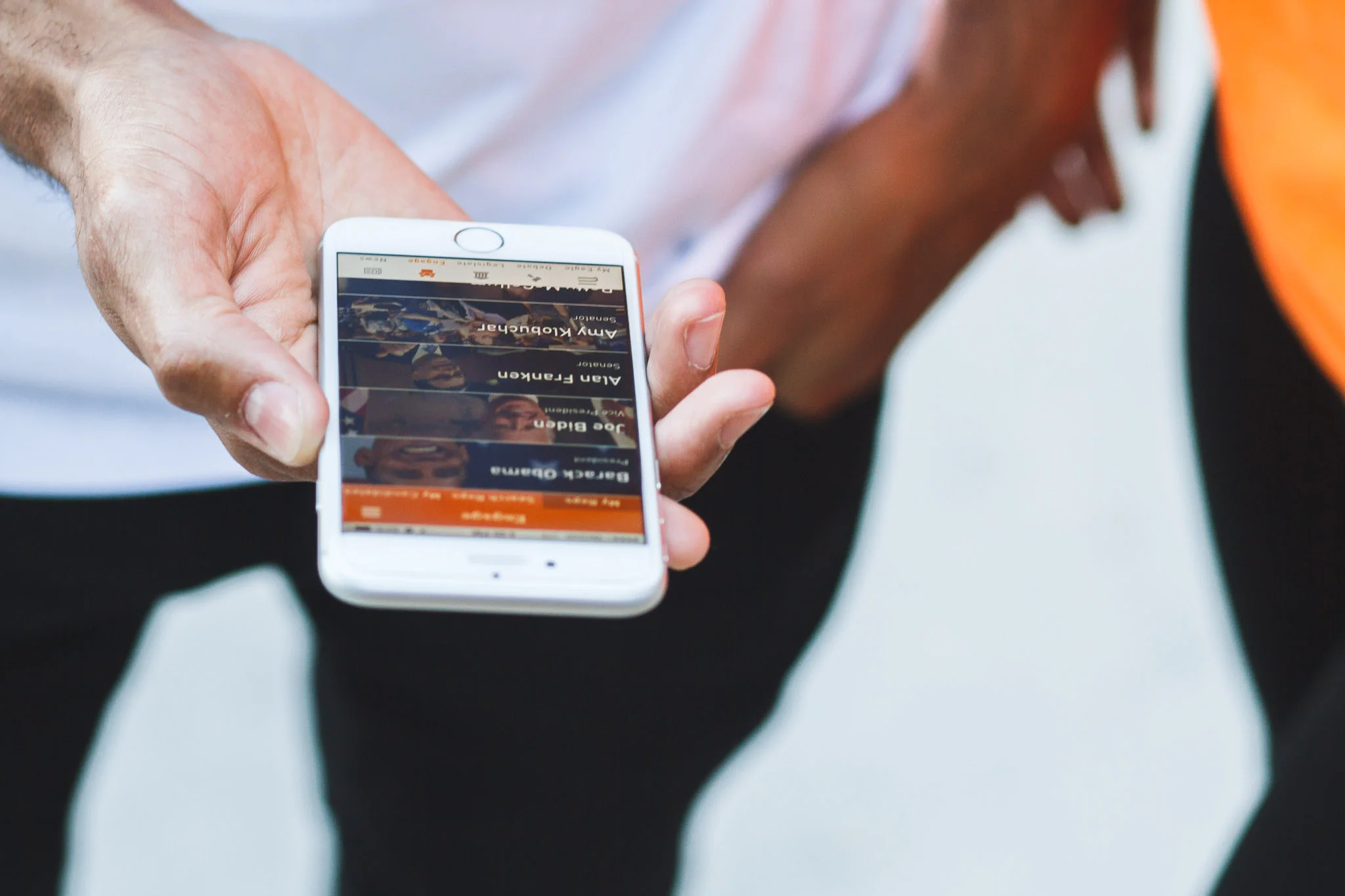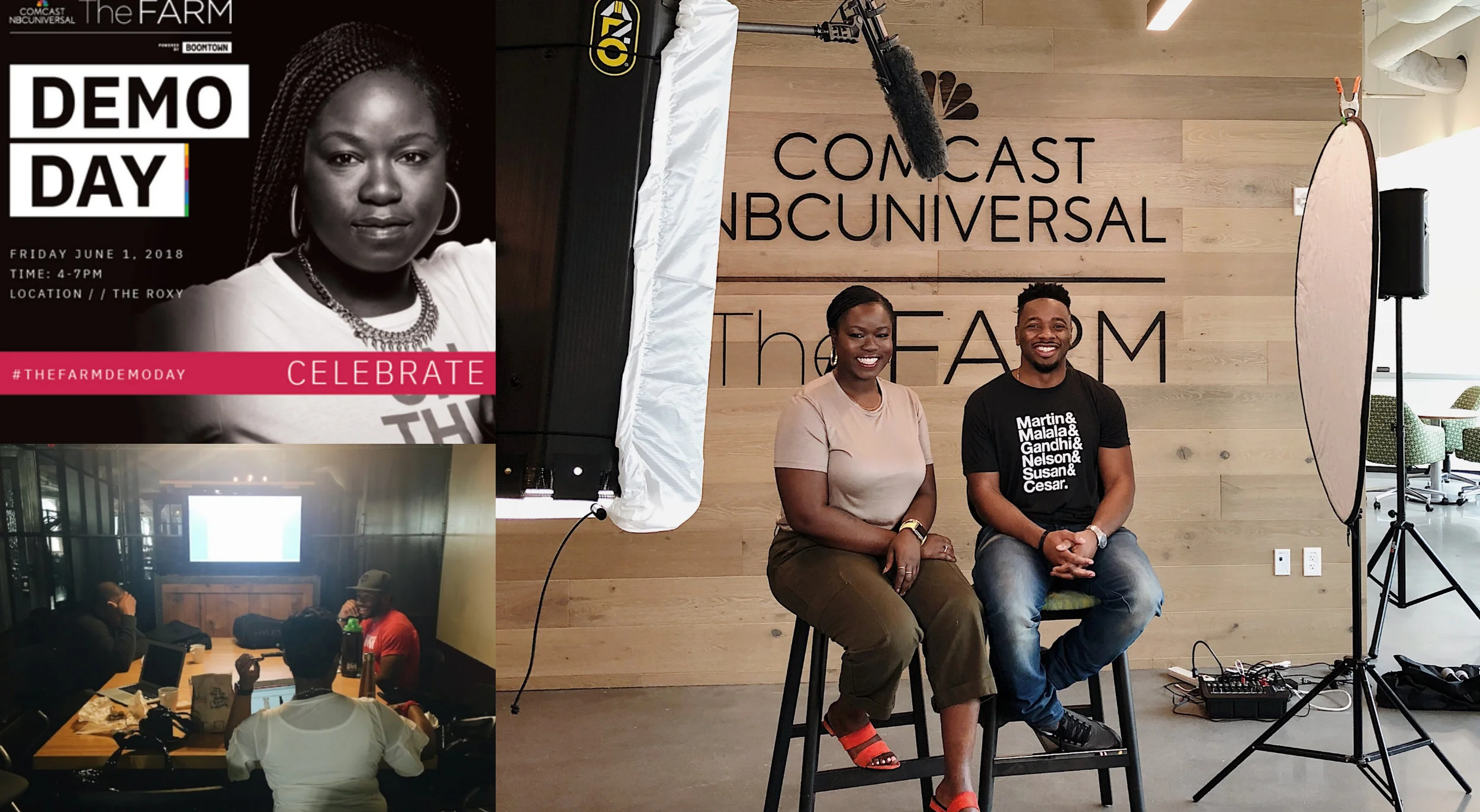Ruthless for Good: Damola Ogundipe
We’re thrilled to be recruiting for our 2019 Education Fellowship. Over the next few weeks, we’ll be featuring Fellows from our most recent cohort as they share about their founder journey, Camelback application advice, and their Fellowship experience.
The Founder’s Journey
Amanda Tien of Camelback Ventures (CV): Tell me about the moment you knew it was time to start this tech organization.
Damola Ogundipe (DO): I remember being a recent grad and trying to understand the Affordable Care Act. I really wanted to be able to figure out how it was going to affect me, my friends, and my family. People were going back and forth on it, and every media source had a different take and claimed it would impact the middle class in different ways. It wasn’t helpful. I was getting increasingly frustrated at the lack of access to legislative and political information in general. I started to think, how could I increase accessibility to this information? When we started Civic Eagle, we basically just wanted to create technology that did that.
CV: What do you wish people knew about this field?
DO: Keeping track of legislation is a shit show. I’ve seen bills pushed through legislation in a week. Sometimes it’s takes 2-3 years and then it’s an omnibus bill -- a mega consolidated pack that makes it extremely difficult to parse apart. I’ve seen bills die in a completely unrelated committee and don’t go anywhere. Some lobbyists have told me how they don’t even have to worry about advocating against a bill: they just wait until it hits a committee they control, and kill it. For example, an environmental bill that has a tangential impact on public transit has to go through the transportation committee: it will sit there and die for two weeks because a major oil company is a major donor to three committee chairs. There are no hard and fast rules, except for power dynamics. Instead, in our news, we hear a lot about POLICY. We’ll hear about the president’s policy on tax, immigration, the EPA. But we never hear about legislation, and we don’t understand that it is legislation that will actually enact whether those things happen or not.
I also wish people knew how hard advocacy organizations work for the people and for causes. I don’t think “lobbyist” is bad or a taboo word or job. The people who are making a difference in legislation are these lobbyists working on behalf of communities. I feel that it’s our job to create technology that is scalable, dynamic, and truly helpful to empower these hard-working organizations with great software to make sure communities and causes get the support they need.
CV: Think back to the beginning. What was something you did early in the process that you're really glad you did?
DO: Pulling together a team right away. I didn’t try to do anything on my own. I knew I needed to find people who were smarter than me. I had to bring on people not just as contractors -- I chose to give away pieces of my company because I wanted smart people who had cache in the vision-setting stage, and I had to bring them in as thought partners and really invested stakeholders on exploring ideas. The first person I sought out was an expert on policy -- I knew nothing about that at the time, and I needed someone with credibility and who had innovative ideas for what the space needed. The second was a really serious CTO, not just an offshore developer.
Another thing I think I did well, especially as a tech founder, is to make something I could show to people. I built a super clunky prototype. I’d go to networking events and say, “I’m thinking about this kind of thing - tap on the screen - and this is the kind of person I’m looking for. A professional policy expert, an engineer, a specific designer.” My conversations were very targeted. In any conversation, I had something I could explain, then show, and then make an ask for what I needed. What that meant for me is that people realized I was serious, and they’d make strong introductions for me and I kept meeting more and more valuable people.
CV: On the flip side, what was something you did early on that was a mistake?
DO: Launching something without validating that people wanted it. We had this initial idea for a mobile app and ran out with it and launched it. We didn’t do any customer discovery or demand authentication. I’ll never do something like that again; just because I think people want it doesn’t mean they do. You need to know there’s a high use case for what you’re really creating, tech or otherwise.
CV: What advice would you give to an ed tech founder just starting out?*
DO: Two things: 1) figure out what it is that you don’t know. Don’t make an assumption that you know everything, and of course, there’s a lot of unknown unknowns. The best thing you can do is to find people to join your team or advisors in the earliest of stages so you not only learn, but you learn what else you need to learn. 2) It’s important to do serious due diligence to understand the space you’re entering. You don’t need to know every single competitor, but you have to have a base understanding of what’s going on. Who could you partner with? Who’s already done what? What incubators are in the space? Who’s investing in this space? Who else is interested in the cause? Don’t just study the market, also study the ecosystem at large around your topic.
The Camelback Application Process
CV: Tell me about deciding to apply for the Camelback application and that experience.
DO: I had been hearing about Camelback for a year or two before I decided to apply. I thought it existed in a really interesting nexus: it’s a social impact program, but it’s also an accelerator and a “fellowship.” There’s not a lot of places that do that kind of work, especially around social impact architects -- and I want to specifically call it architects rather than entrepreneurs, because we’re diverse leaders and builders of different types of work -- and especially for people of color and women. Folks like us are just not often given an opportunity to scale the kind of work we’re trying to do. That’s why I applied in the first place; not just to get the programing, but to meet people who were mission-aligned.
CV: What was the hardest part of the application?
DO: The length. It’s just a long time with a lot of waiting. Sometimes you forget you applied for something. But I don’t think the application itself was hard -- I like those kinds of questions that were on the Camelback app. If you don’t have the answers to an app like Camelback’s, then it’s stuff you need to figure out ASAP so it’s good someone’s making you think about it. And if you have the answers to them, then it’s easy -- it means you’ve already thought deep enough about your work that it’s just writing it down. There’s nothing crazy or excruciating, and I appreciated that. It’s all good, thought-provoking stuff.
CV: What do you think you did really well during the process and what advice would you give to applicants right now?
DO: Be excited about the thing that you’re working on! I know that seems simple but I feel I have to say it. When I got to the video interview, people could probably tell -- I was VERY excited. I’m already little bit of an excitable person and passionate in general, but when I get amped about my work, I was just FIRED UP. That shows. And I think that’s good -- you want people to be excited by the way you talk about your work. For me, it was about not coming to it as an intellectual or being too cool. Come as you are, come as the nerd you are for this baby you’ve created. Let your passion for this work show -- don’t over analyze or try to be too smooth. I think Camelback appreciated that genuine excitement and passion, and it shows in the leaders they choose to work with.
Your Camelback Fellowship Experience
CV: Tell me about an experience you’ve had with your venture that you feel confirms you’re making an impact.
We’ve had an amazing amount of support from an organization called the Minneapolis Foundation. They’ve supported a diverse array of orgs doing racial equity, education equity, environmental protection, a lot of things to support their city. They support us, and they have found other Twin Cities organizations that could use Civic Eagle and have made it possible for us to give them access. We’ve learned so much from working with them and these other orgs: what people really care about, what sales cycles are like, the types of users in their organization and their mindsets. I’ve learned how important it is to stay grounded in the issues. These people have found ways to hit these issues hard and are making tangible, big impact on the work. They’re not over-analyzing our platform -- they’re using it and running with it to make change happen. I used to go into meetings and think I had to explain machine learning and rattle off all these technological advances. But they don’t need to hear that. Because of the Minneapolis Foundation and those partnerships, I’ve learned how to have sales calls where I know exactly what they need to know about and how I can explain our different price points and how we can help them specifically. I’m able to empathize with their employees and needs, rather than get obsessive about explaining to them big data and AI. Change-makers don’t have time for that: they just need the info. And what we can do is make their lives so much easier by making that info readily accessible and digestible.
#ruthlessforgood
Damola and other 2018 Fellows at Showcase
CV: How did you grow as a leader from the Fellowship?
DO: Easy question. As a for-profit entrepreneur, you get so consumed by the bubble you work in. You get in the zone about your investor pitch deck and your sales deck and KPIs and things like that. I remember this one moment in Summit 2 of Camelback -- we had split into two break-out groups (for-profits in one room, nonprofits and schools in the other) for a panel lunch with funders, and we came back together and did a debrief. Somebody asked a question and I answered saying something about VC’s. And Myron says, “What’s a VC?” And Martha and I look at each other and are like, “Venture capitalists...duh dude.” But then a few minutes later, Byron made a comment and used the term, “P.D.” And I said, “What the hell is that?” And all the educators were like, “Uhhh, professional development?” It was a small moment, but it was a clear indicator of how we are all in our bubbles about language and work. The upside of that is that I am so grateful to have been in a cohort with so many different kinds of architects. It is great and exciting and truly interesting to see what people are doing in other verticals. That experience had a huge impact on me, and I took away all these ideas and lessons that I wouldn’t normally have been exposed to just in tech bubbles. I’m going to be able to apply these concepts and methods from other organization types, and it’s going to make me such a better CEO and entrepreneur. For example, I remember learning so much from Brandon, Martha, Myron, and Antionette, just the way that they work and think. I hope I’ve done the same for my cohort, too.
Just want to say a thank you to the Camelback team for this experience, and to my cohort as well.
Go vote.





